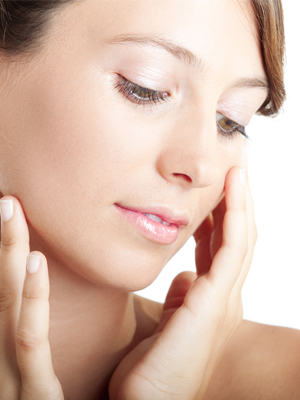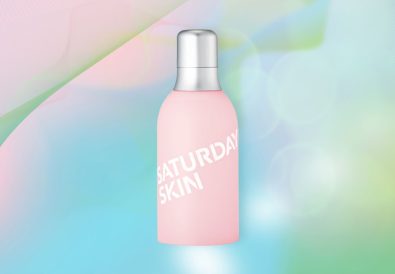The secret to glowing skin is knowing your skin type and treating your complexion accordingly. No, it’s not rocket science”but surprisingly, many of us get it wrong. There are five major skin types: dry, oily, normal, combination and sensitive. To find out how you should be taking care of your skin, take this simple test, and then get busy!
First, wash your face with your regular cleanser. Then, wait at least 30 minutes before examining your skin.
Dry Skin
If you have dry skin, your face will feel tight after cleansing. You may already see fine lines developing around your eyes or mouth. You may have a problem with itchy skin, or dry patches on your face. Women with dry skin need to use creamy, hydrating cleansers in order to avoid stripping away precious oils. A good moisturizer is important, too, to keep dry lines at a minimum and your face feeling soft and smooth.
Oily Skin
If you have oily skin, the shine will begin to show as early as a few minutes after cleansing. You are probably prone to breakouts, especially around your period. Use a gel or foaming cleanser formulated for oily skin, and then follow with an oil-control lotion, especially during summer’s humid months.
Normal Skin
Normal skin will feel neither dry nor oily after cleansing, with no shine. Lucky girl! You rarely break out, and you don’t have dry, tight skin anywhere. You can use any type of cleanser or moisturizer”it’s a matter of personal preference. But remember: even though your skin is perfect now, you still need to take care of it. Don’t forget to always wear at least an SPF of 15 to avoid premature aging and sun damage.
Combination Skin
Combination skin is usually normal skin with a bit of shine around the T-zone (the oily area across your forehead, down your nose, and continuing to your chin). After washing your face, check for shine in the T-zone and dryness or tightness on your cheeks (combination skin often has dry patches on the cheeks). Combination skin can be more difficult to care for, but don’t be afraid to treat your problem areas individually. If you are prone to breakouts around menstruation, as many combination-skinned women are, use an acne product just in those areas. The same goes for adding a more hydrating moisturizer on any dry areas on your cheeks.
Sensitive Skin
If you have sensitive skin, you probably flush easily, sunburn easily, and may have broken capillaries on your cheeks. Sensitive skin also reacts to many common ingredients found in skincare products. You’ll need to pay special attention to ingredients and look for products specifically formulated for sensitive skin or labelled as hypoallergenic. Otherwise, consider seeing a dermatologist if over-the-counter skin care doesn’t work for you.














Comments